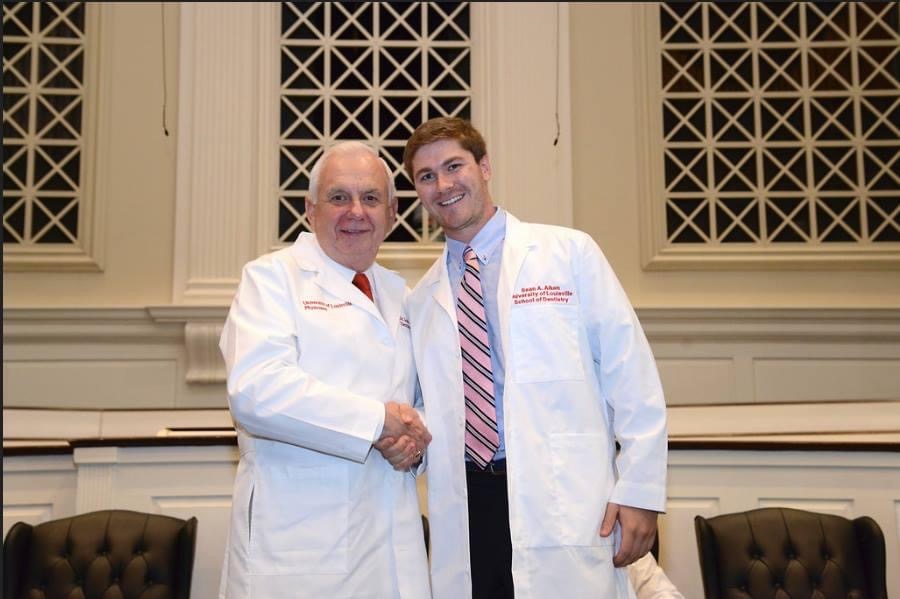Influencing your practice as an associate
Two dentists share experiences, advice on navigating associateships

When Sean Aiken, D.M.D., graduated from the University of Louisville in 2018, he did what many new dentists looking for a job today: an associateship. Well, for him, it was two associateships in two separate practices in the Louisville area.
One of those practices, Dr. Aiken said, needed some modernizing and upgrading — it was still using paper charts.
But how does a fresh-out-of-school employee dentist influence decision-making in an office led by a practice owner with decades of experience?
“You don’t want to come in with vastly different practice philosophies and make demands,” he said. “You can really turn people off, including the owner docs who have spent 30 to 40 years building their practice.”
Katie Stuchlik, D.D.S., said it’s a common challenge among new dentists in associateships.
“It’s difficult to have much of a voice in materials and instruments used in the office,” said Dr. Stuchlik, who joined a practice as an associate after graduating in 2015 from the University of Texas School of Dentistry. “One of my friends doesn’t even have adequate suction in an office he works in, and another asked to order instruments and was told he can use what’s in the office. My experience hasn’t been far from each of theirs.”
Drs. Aiken and Stuchlik, who today are now practice owners themselves, share some insights on how associate dentists can have a more active role in their practice. Dr. Stuchlik co-owns a practice she opened in 2018 in Houston; and in 2020, Dr. Aiken bought the Louisville practice he once helped modernize.

Show tangible, intangible value
It took Dr. Aiken about three to six months to feel more comfortable at his associateships.
“At that point, I’ve gotten to know my assistants, the staff, my patients, the practice culture,” he said. “The dentistry becomes easier when you’re less worried about the day-to-day of the practice.”
So when it came time to make his suggestion in updating the practice, the conversation with the practice owner was also a little easier.
“I’ve been there long enough that I was able to express that this is where I wanted to be long term,” he said. “And I was able to share how updating a practice can ultimately help everyone, including the dental team and our patients.”
Providing your boss with research that relates to your specific practice setting can go a long way, said Dr. Stuchlik.
During her associateship, Dr. Stuchlik learned of a new discovery tool to enhance oral cancer screenings at a study club continuing education course.
“It seemed like a no-brainer to implement this product in our practice, but my student loan burden definitely couldn’t afford this instrument,” she said. “I stated my case to the practice owner and how I felt it was important to offer more extensive oral cancer screenings to our patient population. A few weeks and a visit from the company later, the practice now utilizes this product on a daily basis.”
Importance of communication
It’s often not what you say, but how you say it, Dr. Aiken said.
You can be armed with all the research and data, but they all could be ineffective with the wrong approach.
“I would say be delicate when asking for changes,” he said. “I don’t think I recognized the importance of this initially. When making suggestions, remember that you may come across as questioning the owner’s ability to run a practice.”
He added that as important it may seem to have a new dentist enter a practice with a fresh set of eyes, associates also need to see the importance of experience when leading the practice.
“Associates should come in with an open mind and be inquisitive,” Dr. Aiken said. “Being tactful also doesn’t hurt.”
Don’t get discouraged if denied
Perhaps the research was insufficient. Maybe there are more aspects to the business you can’t understand yet as an associate.
“Ask the dentist you work for if there are any specific questions he or she has, and if there is any more research that can be done,” Dr. Stuchlik said.
When Dr. Aiken made his suggestions in updating the practice, the owner allowed him to do whatever he wanted — except one thing: changing the dental restorative material used in the practice.
“It’s definitely a give and take,” he said.
It’s one of the perks of being the boss: having the final say. Dr. Aiken would know. He was finally able to switch to the dental restorative material he preferred — when he became the practice owner.



